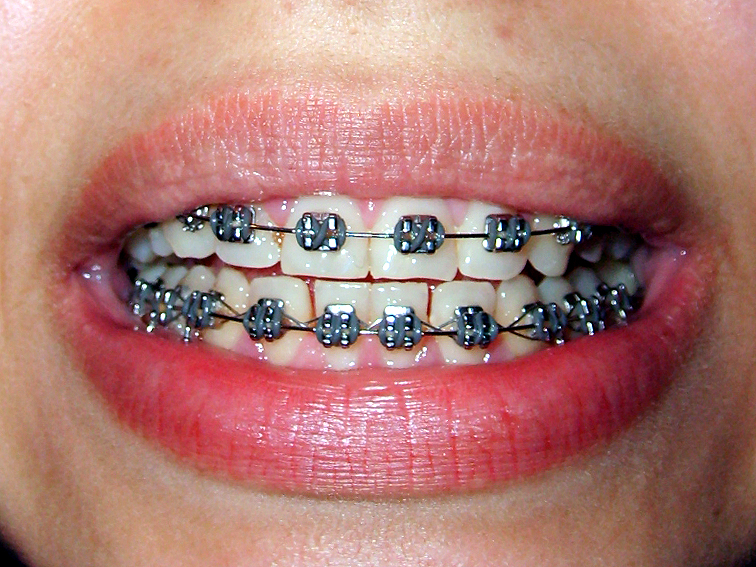- AppliancesElectriciansHVACLandscapingLocksmithPest ControlPlumbingRenovationRoofingT V RepairAll Home Improvement
- Car AccidentClass ActionCorporate LawCriminal DefenseDivorce LawEmployment LawFamily LawFinancial LawLegal AidMedical Injury LawyersMedical MalpracticeReal Estate LawWater Fire RestorationAll Legal
- InvestmentRetirementAll Finance
- Animal InsuranceAutoGeneral InsuranceHealth PolicyHome RentersAll Insurance
- DentalHealth SpecialistsAll Medical
- Animal CareVeterinaryAll Pets
- Auto GlassTowingAll Automotive
What's the Difference Between a Dentist and an Orthodontist?

So, your dentist has just referred you to an orthodontist, which is a little confusing. After all, your dentist is the go-to person for oral care, and you're reclining in their office with your mouth wide open. Why do you need to see someone else?
Although both dentists and orthodontists have years of schooling devoted to oral health issues, they each have a particular focus.
Your dentist handles overall oral health, covering everything from preventive dental care to corrective procedures. Because dentists treat such a wide range of conditions, they often refer patients with unusual complaints to a specialist in that field.
One of these specialists is the orthodontist, whose additional training in teeth and jaw alignment makes them uniquely qualified to rework your bite and straighten crooked teeth. Learn more about orthodontists vs. dentists, including their typical day's work.
What Is a Dentist?
Dentists are health practitioners who manage basic oral care. Each state has individual licensure requirements, but in most cases, a dentist must complete a bachelor's degree (preferably in the sciences) and receive a graduate degree from a dental school (DDS or DMD). Before beginning their practice, dentists must also pass clinical and written exams.
Dentists have a broad range of duties, which include:
- Instruction and advice on oral hygiene and preventive care
- Diagnosing problems through physical exams and viewing X-rays
- Administration of numbing medication, topical and injectable
- Removal of tooth decay and placement of fillings and crowns
- Tooth extraction
- Creating molds for bite guards and dentures
You should visit your dentist regularly to keep your teeth and gums in good condition. Most checkups consist of semiannual or yearly X-rays, teeth cleaning (usually by a hygienist) and a dental exam. If your dentist notices any decay, they fill cavities as needed.
Orthodontists are oral professionals who specialize in teeth placement and bite mechanics. But is an orthodontist a dentist? Yes, orthodontists must complete all the training and legal requirements to become a dentist, with an additional 2- to 3-year residency program in orthodontics.
While orthodontists have the background knowledge and training of a dentist, their primary duties involve teeth alignment problems, such as:
- Overcrowding
- Missing teeth
- Protruding teeth
- Improper bites
- Gaps in teeth
Misaligned teeth can cause multiple problems, including temporomandibular joint disorder (TMJ), excessive wearing of the enamel and an increased risk of cavities and gum disease.
More Related Articles:
- How Often Should You Go to the Dentist?
- Do Dentists Offer Payment Plans?
- Everything You Need to Know About Emergency Dentists
- How Much Does a Dental Cleaning Cost?
- How Much Do Dentures Cost?
Other Oral Health Professionals
While your dentist can handle overall oral health, they may refer you to other oral specialists for specific complaints.
- Periodontists treat gum disease by performing surgery on gum and bone tissue. They also supervise root planing and tooth scaling by a specially trained dental hygienist.
- Endodontists focus on problems with the tooth's root and pulp. They frequently complete root canals and help manage abscesses that form at the root of the tooth.
- Oral surgeons perform a variety of surgical procedures, including jaw surgery, impacted or complicated tooth extractions, placement of implants and injury restoration.
If you're wondering how to choose a dentist, orthodontist or one of the specialties mentioned above, start with your regular dentist. They’re familiar with your dental history and will know if or when you should be referred to a specialist. In most cases, you'll visit an orthodontist or other oral specialist for a limited time or a particular problem. In the meantime, you'll continue to see your regular dentist for routine oral care.
Elocal Editorial Content is for educational and entertainment purposes only. The information provided on this site is not medical advice. Editorial Content is not intended to be used for diagnosis or treatment. We are not physicians or a substitute for advice from a physician. The opinions, beliefs and viewpoints expressed by the eLocal Editorial Team and other third-party content providers do not necessarily reflect the opinions, beliefs and viewpoints of eLocal or its affiliate companies. Use of the Blog is subject to the
Website Terms and Conditions.The eLocal Editorial Team operates independently of eLocal USA's marketing and sales decisions.



